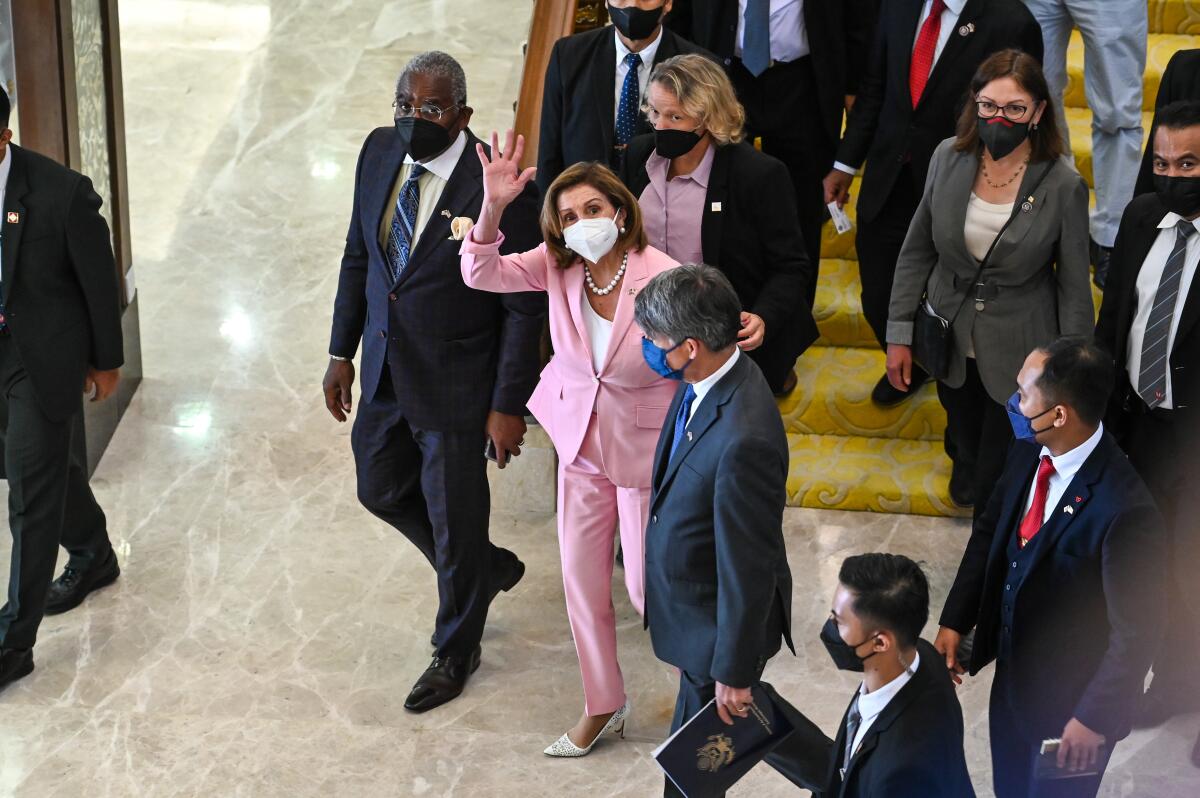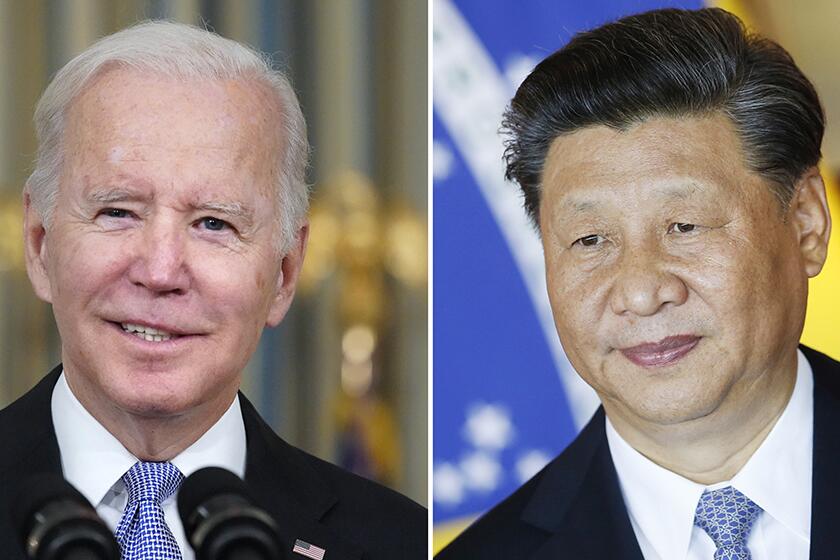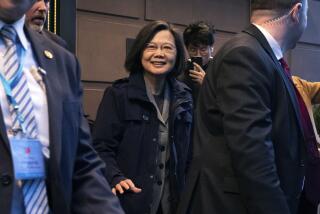Pelosi leaves Malaysia as tensions rise over expected Taiwan stop

KUALA LUMPUR, Malaysia — House Speaker Nancy Pelosi left Malaysia on Tuesday and was expected to visit Taiwan, escalating tensions with Beijing, which claims the self-ruled island as its own territory.
The plane carrying Pelosi and her delegation left from a Malaysian air force base after a brief stopover that included a lunch meeting with Prime Minister Ismail Sabri Yaakob, an official said on condition of anonymity because he wasn’t authorized to release details to the media.
Pelosi is on an Asian tour this week that is being watched to see if she will defy China’s warnings against visiting Taiwan.
It was unclear where she was headed from Malaysia, but media in Taiwan reported that she would arrive Tuesday night, becoming the highest-ranking elected U.S. official to visit in more than 25 years. The United Daily News, Liberty Times and China Times — Taiwan’s three largest national newspapers — cited unidentified sources as saying she would spend the night in Taiwan.
Taiwan’s Foreign Ministry declined to comment. Premier Su Tseng-chang didn’t explicitly confirm Pelosi’s visit but said Tuesday that “any foreign guests and friendly lawmakers” are “very much welcome.”
China, which regards Taiwan as part of its own territory that must be brought back under the mainland’s control by force if necessary, has repeatedly warned of retaliation if Pelosi visits, saying its military will “never sit idly by.”
Taiwanese people are used to threats of force by China, and urge the House Speaker to visit. But it’s a crisis not of their making.
“The U.S. and Taiwan have colluded to make provocations first, and China has only been compelled to act out of self-defense,” Chinese Foreign Ministry spokeswoman Hua Chunying told reporters Tuesday in Beijing.
Hua said China had been in constant communication with the U.S. and made clear “how dangerous it would be if the visit actually happens.” Any countermeasures China take would be “justified and necessary” in the face of Washington’s “unscrupulous behavior,” she said.
China’s military threats have driven concerns of a new crisis in the Taiwan Strait, which separates the two sides, that could roil global markets and supply chains.
The White House on Monday decried Beijing’s rhetoric, saying the U.S. has no interest in deepening tensions with China and “will not take the bait or engage in saber rattling.”
President Biden seeks to quell rising tension over Taiwan in a call with Chinese President Xi Jinping.
White House National Security Council spokesman John Kirby underscored that the decision on whether to visit Taiwan was ultimately Pelosi’s. He noted that members of Congress have routinely visited the island over the years.
Kirby said administration officials were concerned that Beijing could use the visit as an excuse to take provocative retaliatory steps, including military action such as firing missiles in the Taiwan Strait or around Taiwan, or flying sorties into the island’s airspace and carrying out large-scale naval exercises in the strait.
“Put simply, there is no reason for Beijing to turn a potential visit consistent with long-standing U.S. policy into some sort of crisis or use it as a pretext to increase aggressive military activity in or around the Taiwan Strait,” Kirby said.
U.S. officials have said the U.S. military would increase its movement of forces and assets in the Indo-Pacific region if Pelosi visits Taiwan. The U.S. Navy aircraft carrier USS Ronald Reagan and its strike group were in the Philippine Sea on Monday, according to officials who spoke on condition of anonymity to discuss military operations.
Breaking News
Get breaking news, investigations, analysis and more signature journalism from the Los Angeles Times in your inbox.
You may occasionally receive promotional content from the Los Angeles Times.
Taiwan and China split in 1949 after the Communists won a civil war on the mainland. The U.S. maintains informal relations and defense ties with Taiwan even as it recognizes Beijing as the government of China.
Pelosi kicked off her Asian tour in Singapore on Monday, where Prime Minister Lee Hsien Loong “highlighted the importance of stable U.S.-China relations for regional peace and security.” This was echoed by Japanese Foreign Minister Yoshimasa Hayashi in Tokyo, who said stable ties between the two rival powers “are extremely important for the international community as well.”
On Thursday, Pelosi is to meet with South Korean National Assembly Speaker Kim Jin Pyo in Seoul for talks on security in the Indo-Pacific region, economic cooperation and the climate crisis, according to Kim’s office. Pelosi is also due to visit Japan, but it is unclear when she is heading there.
More to Read
Sign up for Essential California
The most important California stories and recommendations in your inbox every morning.
You may occasionally receive promotional content from the Los Angeles Times.












